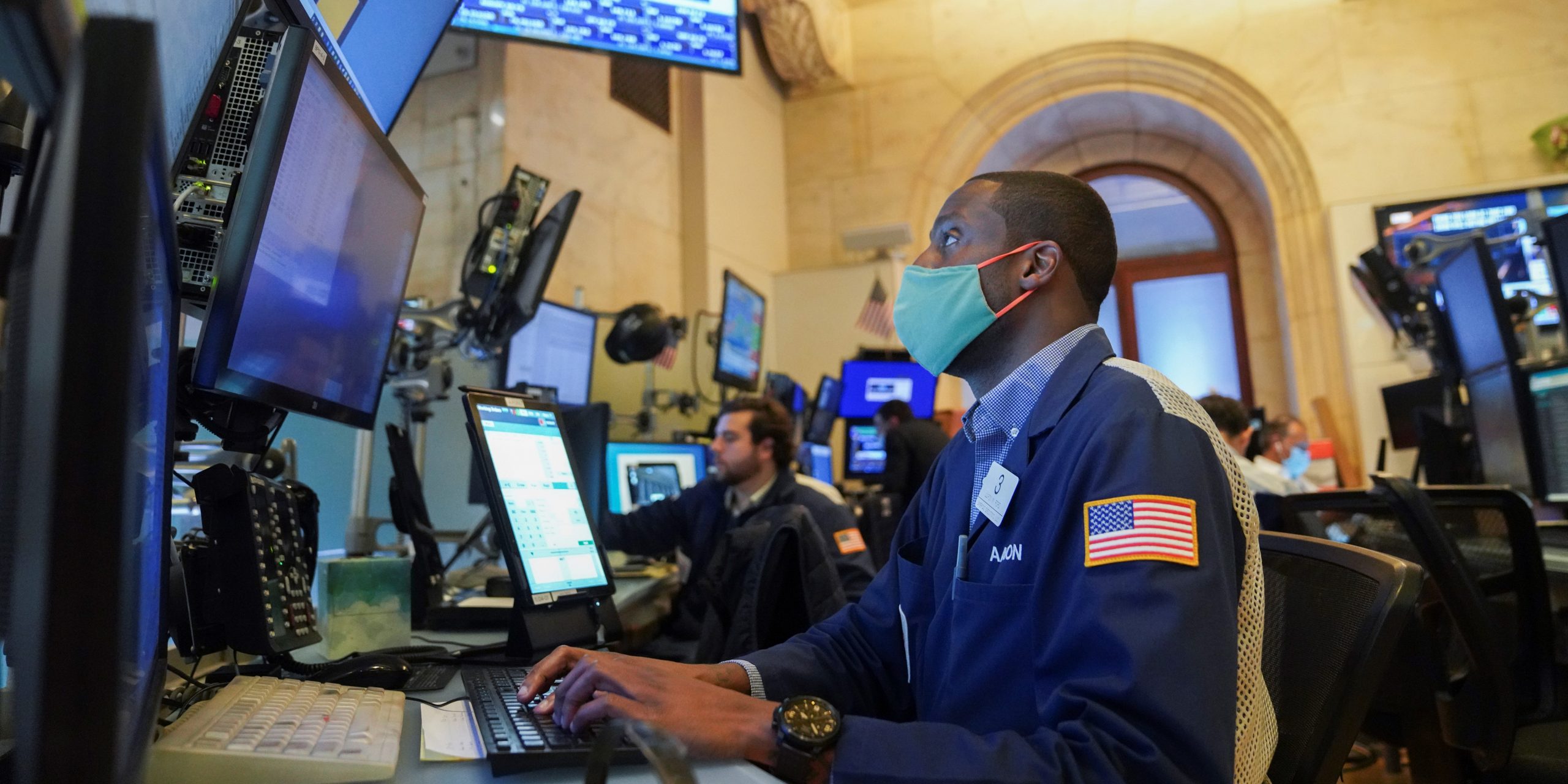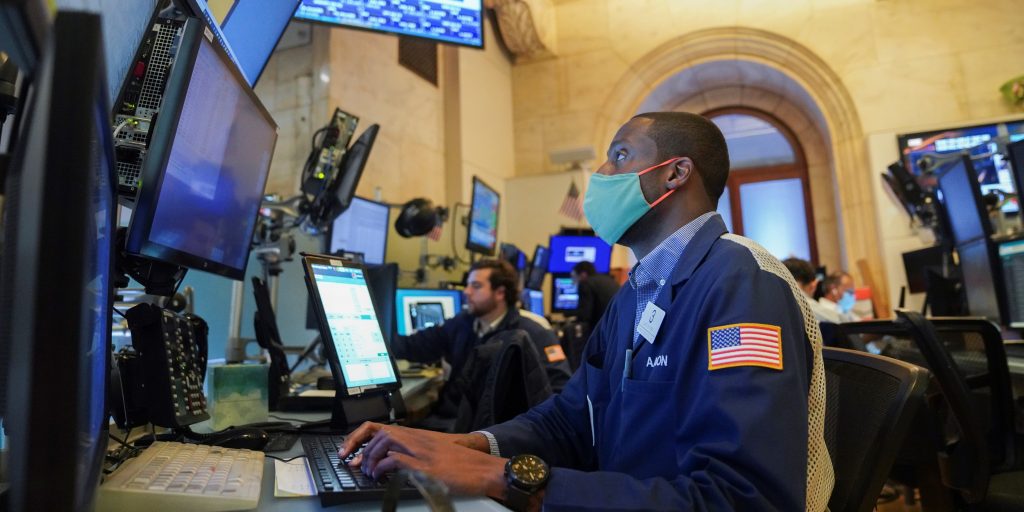
- US stocks closed higher Tuesday after Russia said it pulled back some of its troops from its border with Ukraine.
- The Producer Price Index rose 1% last month, marking a significant acceleration from December's 0.2% jump.
- Oil prices have retreated from their eight-year highs; gold price also edged lower.
US stocks closed higher Tuesday on hopes that geopolitical tensions are cooling after Russia said it pulled back some of its troops from the Ukraine border.
The announcement from the Russian defense ministry came after weeks of heightened tensions between Russia, Ukraine, and the West over fears that President Vladimir Putin would choose to invade.
The S&P 500 rose — with 10 of its 11 sectors in the green — after falling for three straight sessions. The blue-chip Dow Jones Industrial Average and the technology-heavy Nasdaq Composite both climbed as well.
Here's where US indexes stood after the 4:00 p.m. ET close on Tuesday:
- S&P 500: 4,471.07, up 1.58%
- Dow Jones Industrial Average: 34,988.84, up 1.22% (422.67 points)
- Nasdaq Composite: 14,139.76, up 2.53%
US equities have been declining in recent days as investors kept track of the tensions in Eastern Europe. It's unclear how many troops Russia withdrew, but the signal was enough to flip the market back to "risk-on" mode.
Kremlin spokesperson Dmitry Peskov later confirmed the start of a withdrawal and slammed Western "hysteria" over the reality of an invasion.
The threat of Russia invading Ukraine sparked fears on Wall Street over the impact on global equities and the economy. On top of this, calls for the Fed to hike interest rates to stem inflation have contributed to market turbulence.
But JPMorgan said the bull market is "far from over." The bank believes a lot of bad news is already priced into the market, and any conflict between Russia and Ukraine would likely lead to a dovish reassessment by central banks.
Fund managers at Bank of America think the S&P 500 needs to sink to 3,698, essentially a bear market, before the Fed would ride to the stock market's rescue. This is a level the benchmark index hasn't seen since December 2020.
The 10-year Treasury yield rose to 2.049% from Monday's 1.995%. Bond yields move inversely to prices.
The input price of businesses leaped in January, signaling that high inflation may stay well into 2022.
The Producer Price Index — a popular measure of business costs — rose 1% last month, marking a significant acceleration from December's 0.2% jump and handily exceeding the median forecast of a 0.5% gain from economists surveyed by Bloomberg.
"With tensions between Russia and Ukraine seemingly cooling, at least for now, the market could welcome some certainty," Mike Loewengart, managing director of investment strategy at E-Trade from Morgan Stanley, said in a Tuesday note. "So while the PPI read is hotter than expected, heightened inflation may already be priced into the market."
In cryptocurrencies, bitcoin rose 3.73% to $44,136, climbing back above the $44,000-level since the end of last week as the broader crypto market recovers.
JPMorgan Chase meanwhile is the latest to enter the metaverse. The US bank opened a lounge in Decentraland located in Metajuku, a virtual version of Tokyo's Harajuku shopping district.
Crude-oil prices have seen upward pressure in the past eight weeks amid increasing tensions between Russia, a major oil producer, and Ukraine. But prices have since cooled from their eight-year highs Monday.
West Texas Intermediate crude slipped 3.70% to $91.88 per barrel. Brent crude, the international benchmark, fell 3.48% at $93.12.
Gold, seen as a safe haven during times of wariness, edged lower by 0.99% to $1,852.85 per ounce after hitting an eight-month high earlier on Tuesday.

